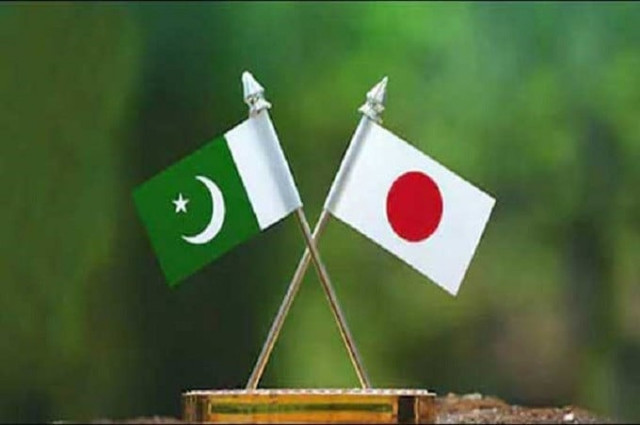Pakistan seeks to diversify opportunities
Eyes Japan as Gulf prospects shrink for skilled Pakistani workers

With shrinking employment opportunities in the Gulf, particularly in the United Arab Emirates, Pakistan has started looking towards Japan to export human resources. The move aims to partially offset the adverse impacts on remittances, despite challenges to adopt Japanese culture by Pakistanis.
Japan has long sought skilled Pakistani workers, but the local authorities were not able to meet the demand due to cultural and language barriers. Though this trend is slowly reversing, it benefits Pakistan through increased remittances and allowing workers to contribute to industrial development upon return to their home country, with the skills and knowledge acquired in Japan, stated Japan's ambassador to Islamabad, Akamatsu Shuichi on Friday.
He said that the upcoming Japanese Language Proficiency Test (JLPT) in July this year has already seen more than 1,000 applicants, reflecting the growing interest in learning Japanese among young Pakistanis.
The foreign remittances sent by Pakistani workers and professionals are now the single largest source of avoiding default, even higher than the highly subsidised exports. Pakistan is expected to receive $38 billion in foreign remittances this fiscal year compared to an estimated about $32 billion in exports.
But in March alone, Pakistan received $4.1 billion remittances with total remittances increasing to $28 billion.
In the year 2023, about 863,000 Pakistanis went abroad, including 230,000 going to the UAE alone.
However, the trend saw a downward spiral after the UAE government placed restrictions on Pakistani workers due to their illegal activities, including begging. As a result, only 64,130 workers went to the UAE in 2024, a reduction of 72% within a year. This pulled the overall number of people going abroad in search of jobs to 727,400 in 2024.
The trend continued in 2025, with only 172,000 people going abroad during January-March period, including just 8,331 to the UAE. Japan's plan to welcome 340,000 foreign workers through the SSF framework offers a great opportunity for Pakistani skilled professionals, said Chaudhry Salik Hussain, the Minister for Human Resource Development and Overseas Pakistanis.
Highlighting challenges, Ambassador Akamatsu said that to live and work in Japan, foreign workers' need a certain level of Japanese language proficiency and an understanding of Japanese customs in business and daily life. He said that institutions like PlusW, Ecoscience, NUML, NUTECH, and HANA have already initiated Japanese language education courses tailored to employment in Japan.
More than the skill set, it is the lack of respect for Japanese culture that is the biggest hurdle in exporting human resources to Japan, said a Pakistani official who, till recently served in Tokyo and worked for expanding cooperation in the human resource field.
He said that Pakistan has the potential to increase remittance from Japan from $20 million per annum to $500 million, subject to adopting Japanese culture and learning their language.
In the year 2023, about 1,184 Pakistanis went to Japan for jobs, which jumped to 1,518 in 2024 and showing an upward trajectory. During three months of this year, 708 Pakistanis went to Japan and the authorities expect that the figure will cross 3,000 this year. According to the recorded data, only 6,272 Pakistanis work in Japan.
The Japanese ambassador emphasised that simplifying procedures on both sides is key to boosting cooperation and increasing the number of workers for smoother engagement.
For Japanese companies, improvements in Pakistan's business environment are also essential. A better business climate would attract more Japanese investments, leading to larger employment opportunities for Pakistani professionals and the development of future-prominent talents, he added.
Since the signing of the Memorandum of Cooperation (MOC) on Technical Intern Training in 2019, more than 100 trainees have come to Japan due to the efforts of the Overseas Employment Corporation (OEC) and other stakeholders. Although this number is not yet satisfactory, this fact shows a tangible progress, said the ambassador.
The JICA chief in Pakistan said that four years ago, JICA conducted two studies to assess Pakistan's ICT sector potential.



















COMMENTS (2)
Comments are moderated and generally will be posted if they are on-topic and not abusive.
For more information, please see our Comments FAQ